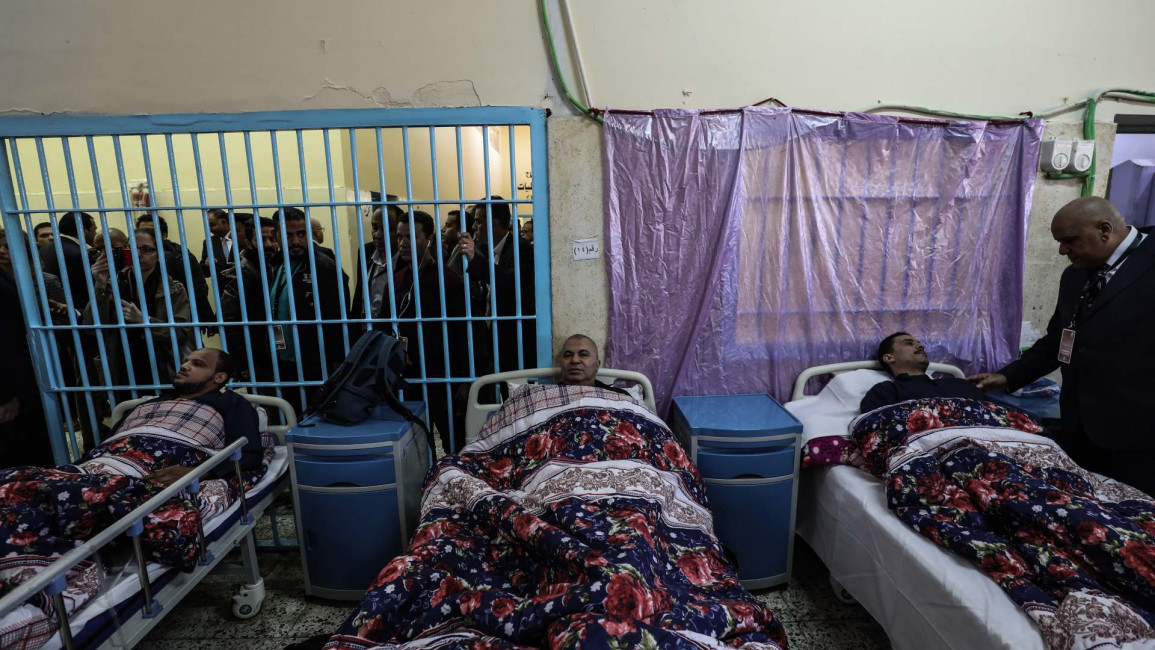UN makes official plea for prisoners’ release to avoid ‘catastrophic’ COVID-19 spread
The United Nations’ human rights body has officially thrown its weight behind a campaign to protect those in detention from the COVID-19 pandemic by demanding that governments worldwide release prisoners of conscience, low-risk offenders as well as older detainees or those with underlying health conditions.
In an impassioned statement released on Wednesday, the UN High Commissioner for Human Rights Michelle Bachelet urged governments to take urgent action to protect the health not only of prisoners and prison staff, but those living and working in all closed institutions including care homes, orphanages and psychiatric hospitals.
“Covid-19 has begun to strike prisons, jails and immigration detention centres, as well as residential care homes and psychiatric hospitals, and risks rampaging through such institutions’ extremely vulnerable populations,” said Bachelet.
Comment: Coronavirus in service of authoritarianism
“In many countries, detention facilities are overcrowded, in some cases dangerously so. People are often held in unhygienic conditions and health services are inadequate or even non-existent. Physical distancing and self-isolation in such conditions are practically impossible,” she added.
Twitter Post
|
Bachelet said the ramifications of ignoring these vulnerable populations as part of coronavirus efforts were “potentially catastrophic”, with an increasing number of deaths already being reported among the prison population and its staff.
She also stressed that it was a government’s duty, under international human rights law, to “take steps to prevent foreseeable threats to public health” as well as ensuring vital medical care for those who need it.
Activists from countries across the globe have been campaigning for the release of detainees, including imprisoned migrants and those detained without fair trial, as the novel coronavirus threatens to spread rapidly in cramped conditions.
“Now, more than ever, governments should release every person detained without sufficient legal basis, including political prisoners and others detained simply for expressing critical or dissenting views,” Bachelet stressed.
The High Commissioner added that a strategy would be needed to release those particularly vulnerable to COVID-19, including medical screenings, appropriate care and health monitoring.
Restrictions on visitors equally poses a risk to prison populations, Bachelet added. “Suddenly halting contact with the outside world risks aggravating what may be tense, difficult and potentially dangerous situations.”
She said that alternative measures should be implemented, such as giving access to videoconferencing, allowing increased phone calls with family members and permitting email.
She also condemned countries penalising breaches of curfews and other coronavirus prevention measures with prison sentences, saying it will only exacerbate the disease’s spread.
“Imprisonment should be a measure of last resort, particularly during this crisis.”
Egyptian activists demand government follows Iran’s example
Authorities released prominent political activist Shady el-Ghazaly Harb as well as 14 other government critics last week, sparking hopes that more releases were to come.
Twitter Post
|
However, a week later, the government remains silent on the issue.
The conditions in Egypt's prisons, in which tens of thousands are confined for their political views, are notoriously dire, and basic healthcare is hard to come by.
Among the thousands of detainees awaiting trial are more than 3,000 people arrested in September last year in the most recent crackdown on dissent following rare protests against Sisi.
Comment: As coronavirus spreads in Egypt, Sisi puts the truth on lockdown
Although the official numbers of coronavirus cases in Egypt is 456, with 21 deaths, a Canadian study has suggested the virus may have spread much further.
But the government has been heavy handed with those criticising its response to the pandemic.
Four women protesting for the release of political prisoners were themselves arrested and briefly detained, while the Guardian's Cairo correspondent was harassed and thrown out the country just for mentioning the study that threw doubt on the country's official COVID-19 figures.
Meanwhile Iran has pardoned or temporarily released around 85,000 prisoners as a precautionary measure to prevent a coronavirus outbreak in its detention facilities.
However, some of those released have already complained that they are suffering from symptoms of the virus.
Iran has the ninth highest prison population in the world, with 240,000 behind bars according to World Prison Brief figures, while Egypt ranks 16th globally with an estimated 106,000 detainees.
Follow us on Facebook, Twitter and Instagram to stay connected



